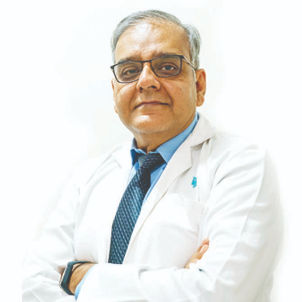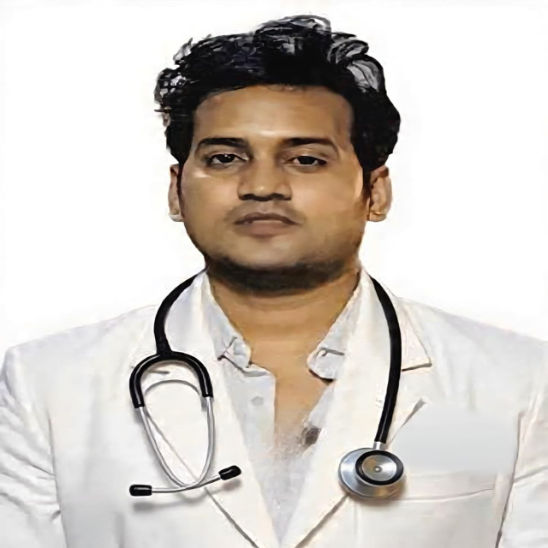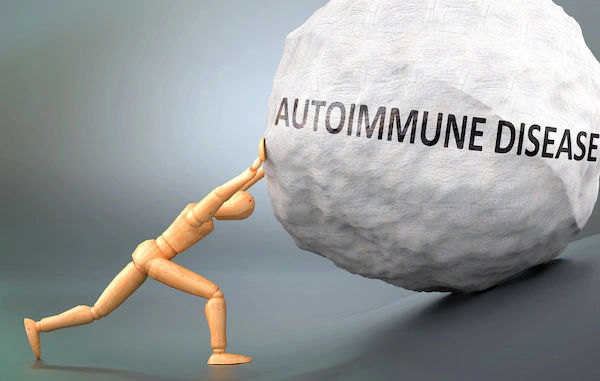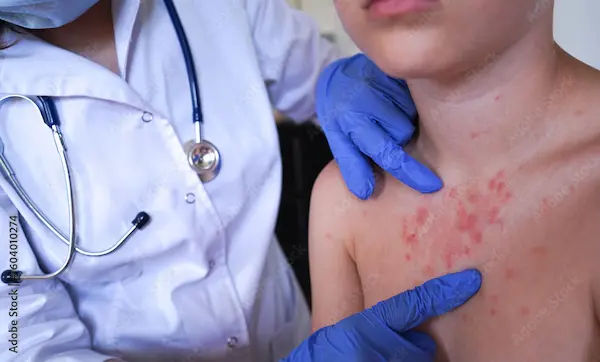Your Child's Bright Future Starts with Healthy Eyes: A Parent's Guide
Learn how to protect and nurture your child's vision with essential nutrients, screen-time tips, eye safety, and regular check-ups for a bright, healthy future.

Written by Dr. M L Ezhilarasan
Reviewed by Dr. Rohinipriyanka Pondugula MBBS
Last updated on 13th Jan, 2026

Introduction
As a parent, you want healthy eyes for your child, knowing that clear vision is a cornerstone of their learning, development, and exploration of the world. From deciphering the words in their first storybook to mastering the coordination needed for sports, their eyes are constantly at work. But in today's world of digital screens and busy schedules, safeguarding their vision requires a proactive approach. This comprehensive guide is designed to empower you with the knowledge and practical steps needed to protect and nurture your child's eye health from infancy through their school years. We'll delve into the essential nutrients that fuel their visual system, outline strategies to shield their eyes from digital and environmental strain, and help you recognise the signs that warrant a professional opinion. Think of this as your go-to resource for ensuring your child's eyesight remains sharp and healthy, paving the way for a bright and clear future.
Why Your Child's Eye Health is More Than Just 20/20 Vision
We often equate good vision with a perfect score on an eye chart, but for a child, it's about so much more. A child's visual system is intricately linked to their brain's development. In the first few years of life, the brain is learning to process visual information—to recognise faces, judge distances, and coordinate eye movements. If there’s an undetected vision problem, it can disrupt this critical learning process.
The Critical Link Between Vision and Learning
It's estimated that as much as 80% of learning is visual. When a child struggles to see the whiteboard clearly, has difficulty focusing on a book, or experiences eye strain while reading, their academic performance can suffer. They may be mislabeled as having a learning disability or an attention problem when the root cause is simply poor vision. Ensuring your child has the visual tools they need is a fundamental step in setting them up for academic success.
How Healthy Eyes Support Overall Development
Beyond the classroom, vision plays a vital role in social and physical development. Clear visual development allows a child to accurately interpret social cues from facial expressions, safely navigate their environment, and develop the hand-eye coordination necessary for activities like catching a ball, drawing, and writing. Protecting their eyes means supporting their confidence and ability to fully engage with the world around them.
Consult a Ophthalmologist for the best advice
Building a Foundation: Essential Nutrients for Young Eyes
Just like the rest of their growing body, your child's eyes need the right building blocks to develop strong and resilient. A balanced diet rich in specific vitamins and antioxidants can significantly contribute to long-term child eye health.
Power Foods for Peak Performance
Focus on incorporating a rainbow of colours onto your child's plate. The pigments that give fruits and vegetables their vibrant hues are often the same compounds that protect the eyes. Here are key nutrients to include for optimal vision and eye health:
- Leafy Greens and Colourful Veggies (Lutein & Zeaxanthin): These two powerful antioxidants act like internal sunglasses, filtering harmful blue light. Think spinach, kale, corn, and orange peppers. If your child is resistant, try blending spinach into a fruit smoothie.
- The Omega-3 Advantage (Fatty Fish): DHA, a type of omega-3 fatty acid, is a major structural component of the retina. Salmon, tuna, and sardines are excellent sources. For picky eaters, consider a doctor-approved supplement or omega-3 fortified eggs.
- Vitamin A & C: The Classic Protectors: Vitamin A is essential for night vision and supports the cornea. Find it in carrots, sweet potatoes, and mangoes. Vitamin C, found in citrus fruits and strawberries, is a powerhouse antioxidant that helps maintain the health of blood vessels in the eyes.
Simple, Eye-Healthy Meal and Snack Ideas
Here are some easy and tasty meal and snack ideas to keep your child’s eyes healthy and strong:
- Breakfast: Scrambled eggs with spinach and a glass of orange juice.
- Lunch: A wrap with salmon or tuna salad and sliced red peppers on the side.
- Snack: Carrot sticks with hummus or a berry and kale smoothie.
Protecting Those Precious Eyes from Harm
The world is full of wonders, but also potential hazards for young eyes. Proactive protection is key to preventing eye injuries in children.
Shielding from the Sun: The Importance of Kid-Friendly Sunglasses
UV radiation can damage the eyes just as it damages the skin. Cumulative exposure increases the risk of problems later in life. Whenever your child is outdoors, ensure they wear sunglasses that block 100% of UVA and UVB rays. Look for durable, polycarbonate lenses that are impact-resistant. A wide-brimmed hat offers additional protection.
Eye Safety During Play and Sports
Sports are a common cause of paediatric eye injuries. For any activity involving flying objects (balls, pucks) or close contact, protective eyewear is non-negotiable. Polycarbonate sports goggles are much safer than regular glasses and should be worn even by children who don't need vision correction.
Creating a Safe Home Environment
Be mindful of common household dangers. Keep sharp objects, chemicals, and sprays out of reach. Pad sharp corners on furniture, and ensure toys are age-appropriate to avoid parts that could projectile into the eye.
Navigating the Digital World: Screen Time and Your Child's Eyes
In our connected age, managing screen time is a major component of modern eye care. Prolonged focus on digital devices can lead to digital eye strain in children, characterised by dry eyes, headaches, and blurred vision.
Understanding Digital Eye Strain in Children
When we stare at screens, we tend to blink less, leading to dry and irritated eyes. The intense focus required can also cause the eye's focusing system to lock up, leading to temporary blurriness after screen use.
The 20-20-20 Rule and Other Protective Habits
Teach your child the 20-20-20 rule: every 20 minutes, look at something 20 feet away for at least 20 seconds. This simple habit gives their eye muscles a crucial break. Also, encourage them to maintain a proper distance from the screen (about an arm's length) and to use devices in well-lit rooms to reduce glare.
Setting Healthy Digital Boundaries
Establish clear rules for screen use. Designate screen-free times, such as during meals and an hour before bedtime (the blue light can disrupt sleep). Encourage alternative activities like reading physical books, playing outside, and engaging in creative play.
Don't Wait for a Problem: The Power of Regular Eye Exams
Even if your child seems to see perfectly, regular paediatric eye exams are essential. Many vision problems, like a lazy eye (amblyopia), may have no obvious symptoms and can only be detected by a professional.
What to Expect at Your Child's Eye Check-up
A comprehensive eye exam is more than reading letters. The eye doctor will check for nearsightedness (myopia), farsightedness, astigmatism, eye alignment, depth perception, and the overall health of the eye. They use child-friendly methods, like using pictures instead of letters for young children.
How Often Should Your Child's Eyes Be Checked?
The American Optometric Association recommends exams at 6 months, 3 years, before first grade, and then every two years if no vision correction is needed. If your child wears glasses or has a known issue, annual exams are typically recommended. If you notice any sudden changes in your child's vision or eye appearance, consult a doctor online with Apollo24|7 for immediate guidance on the next steps.
Red Flags: Recognising Signs of Vision Problems in Kids
Children often don't complain about vision issues because they think how they see is normal. Parents need to be detectives.
Behavioural Signs
Watch for these common behavioural signs that may indicate your child is struggling with their vision:
- Squinting, tilting the head, or covering one eye.
- Sitting too close to the TV or holding books very close.
- Rubbing eyes excessively.
- Losing their place while reading or using a finger to guide their eyes.
- Avoiding activities like reading or puzzles that require close focus.
Physical Symptoms
Keep an eye out for these physical signs that may indicate vision problems:
- Frequent headaches, especially after school or screen time.
- Red, watery, or itchy eyes.
- Eyes that appear crossed or misaligned.
- Sensitivity to light.
When to Seek Professional Help
If you observe any of these signs of vision problems consistently, it's time for a professional evaluation. Early intervention is crucial for treating many childhood eye conditions effectively. If symptoms like eye redness or headaches persist beyond a week, booking a physical visit to a paediatric ophthalmologist with Apollo24|7 can provide a definitive diagnosis and treatment plan.
Conclusion
Ensuring you want healthy eyes for your child is a journey of consistent, mindful habits rather than a single action. By integrating nutrient-rich foods into their diet, being vigilant about protection from the sun and injury, thoughtfully managing their digital exposure, and committing to regular professional check-ups, you are giving them an invaluable gift. This proactive approach lays a foundation for a clear vision that will support their learning, boost their confidence, and enhance their enjoyment of life's adventures. Remember, you are your child's first and most important health advocate. Start implementing these strategies today, and take that vital step of scheduling an eye exam if you haven't already. Your child's bright, clear future depends on the care you provide now.
Consult a Ophthalmologist for the best advice
Consult a Ophthalmologist for the best advice
Dr. Padmini S
Ophthalmologist
4 Years • MBBS,MS
Bengaluru
Apollo Medical Center, Marathahalli, Bengaluru

Dr Deepti Govila
Ophthalmologist
26 Years • MBBS, MS Ophthalmology
Delhi
Apollo Hospitals Indraprastha, Delhi

Dr L R Seth
Ophthalmologist
36 Years • MBBS, MS, DOMS
Delhi
Apollo Hospitals Indraprastha, Delhi

Dr. Aniel Malhotra
Ophthalmologist
30 Years • MBBS, MS, DOMS
Delhi
Apollo Hospitals Indraprastha, Delhi

Dr. Karan Paswan
Ophthalmologist
7 Years • MBBS,MS (Ophthalmology)
Kolkata
VDC Clinic, Kolkata
Consult a Ophthalmologist for the best advice
Dr. Padmini S
Ophthalmologist
4 Years • MBBS,MS
Bengaluru
Apollo Medical Center, Marathahalli, Bengaluru

Dr Deepti Govila
Ophthalmologist
26 Years • MBBS, MS Ophthalmology
Delhi
Apollo Hospitals Indraprastha, Delhi

Dr L R Seth
Ophthalmologist
36 Years • MBBS, MS, DOMS
Delhi
Apollo Hospitals Indraprastha, Delhi

Dr. Aniel Malhotra
Ophthalmologist
30 Years • MBBS, MS, DOMS
Delhi
Apollo Hospitals Indraprastha, Delhi

Dr. Karan Paswan
Ophthalmologist
7 Years • MBBS,MS (Ophthalmology)
Kolkata
VDC Clinic, Kolkata
More articles from General Medical Consultation
Frequently Asked Questions
At what age should my child have their first eye exam?
The first comprehensive eye exam should be at 6 months of age. This early check-up ensures the eyes are developing normally and can detect serious but rare conditions like congenital cataracts or retinoblastoma.
Are cheap sunglasses from the store okay for my kid?
No. Inexpensive sunglasses often lack proper UV protection. When pupils dilate behind dark lenses without a UV filter, more harmful radiation can enter the eye. Always look for a label specifying 100% protection against UVA and UVB rays.
My child's school does vision screenings. Is that enough?
School screenings help identify obvious issues like nearsightedness, but are not a substitute for a comprehensive eye exam. They can miss problems with eye health, focusing, binocular vision, and other conditions that a full exam with a paediatric ophthalmologist or optometrist will catch.
Can too much screen time permanently damage my child's eyes?
While excessive screen time doesn't cause permanent physical damage to the retina, it can significantly contribute to the development and progression of myopia (nearsightedness). It also causes uncomfortable digital eye strain. Managing screen time is crucial for long-term eye health.
What are the symptoms of digital eye strain in a young child?
Look for complaints of headaches, blurred vision, dry or itchy eyes, increased sensitivity to light, and general irritability, especially after using a tablet or watching TV. They may also rub their eyes frequently.




